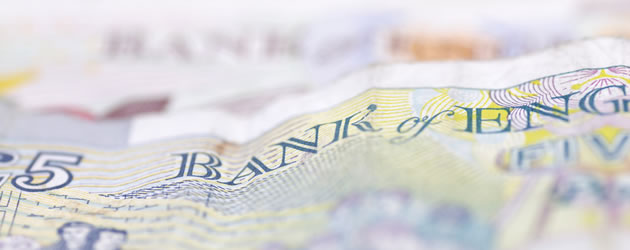 On Wednesday this week the Bank of England is set to release its latest projections for UK growth and inflation amongst a host of other economic forecasts.
On Wednesday this week the Bank of England is set to release its latest projections for UK growth and inflation amongst a host of other economic forecasts.
The Quarterly Inflation report often has a significant impact on the Pound’s exchange rate because it gives traders a fairly good idea of how the Bank intends to conduct monetary policy over the coming months.
In light of recent comments from BoE Governor Mark Carney, markets expect the Bank to modify its forward guidance policy to combat interest rate hike speculation, which has intensified in time to the beat of a rapidly descending headline UK Unemployment Rate.
Since August, when the BoE first opted to link interest rates to the labour market, British Unemployment has fallen by -0.6 percentage points from 7.7% to 7.1%. Whilst this is obviously a good thing for the UK economy and the Bank of England, the swiftness of the improvement in the labour market has caught policymakers off-guard.
UK GDP growth expanded by 1.5% in the second half of 2013 but the BoE is aware that cheap credit is vital to Britain’s revival prospects and subsequently the Bank remains extremely reluctant to raise rates prematurely through fear of suffocating SME’s and consumers’ access to credit.
For this reason Governor Carney signalled last month that he intends to focus on a variety of different economic indicators rather than just the Consumer Price Index and the headline Unemployment Rate.
The Bank chose not to release a statement during last Thursday’s rate announcement but many economists expect Carney to use the Quarterly Inflation report as a platform to modify his forward guidance policy.
It is thought that the Governor could broaden the Bank’s list of indicators to monitor, perhaps to include wage growth and underemployment. However, the Monetary Policy Committee is aware, especially so due to the recent slide in Unemployment, that any indicator can move rapidly in one direction without prior notice. For this reason the MPC may vote against tying the future direction of interest rates to a set of specific targets.
The Pound to US Dollar exchange rate (GBP/USD) has rallied by over ten cents since the BoE first announced its forward guidance programme, due to increased bets from speculators that the Bank will be persuaded to hike rates ahead of schedule.
If the Bank of England does in fact modify its forward guidance policy then it is entirely likely that Sterling will depreciate against the ‘Greenback’ as investors scale back their BoE rate hike bets. Under this scenario the Pound can also be expected to decline against the Euro, the Canadian Dollar, the Australian Dollar, the New Zealand Dollar and its other most-traded currency peers.

Comments are closed.